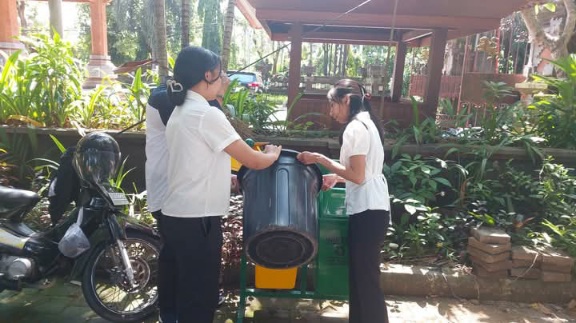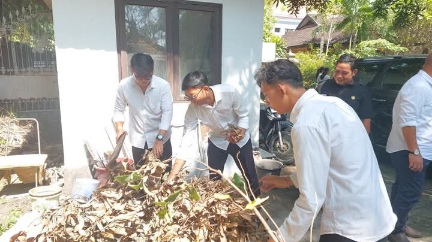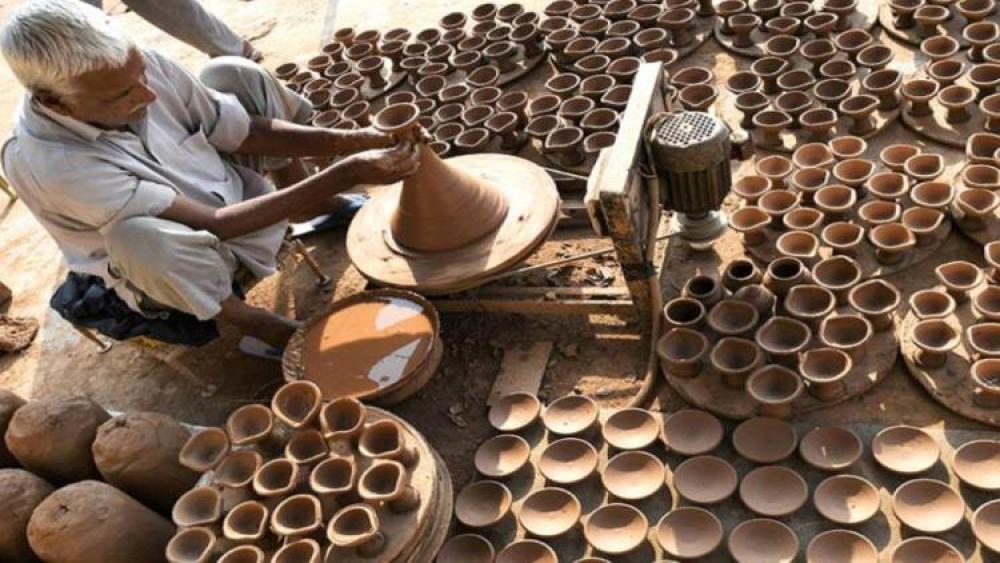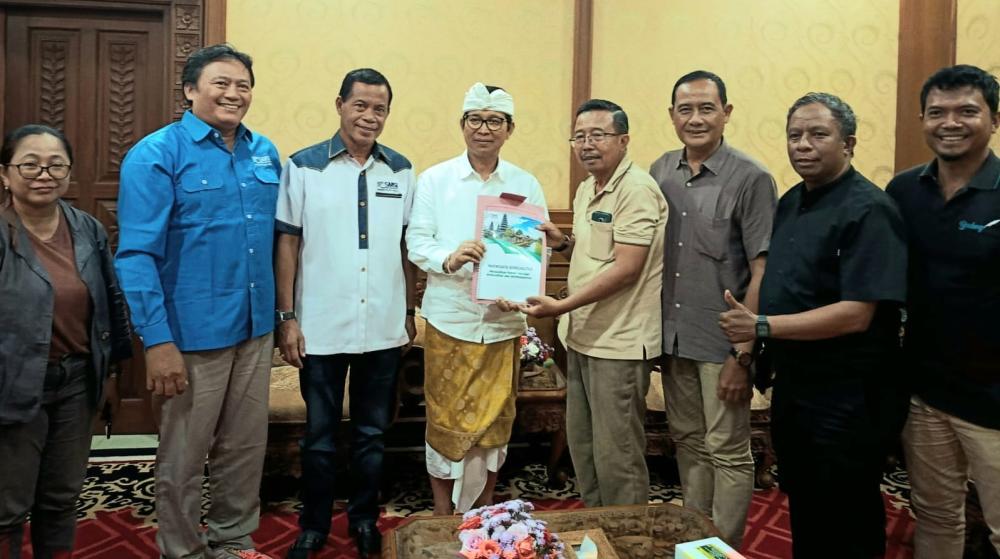From Waste to Compost, Modern 'Teba' Leads KPID Bali’s Green Initiative

DENPASAR, NETIZENBALI.COM - In the Balinese language, "teba" refers to a vacant lot or open area usually located at the back of traditional Balinese homes. Teba is often used for household purposes such as gardening, planting crops, or keeping livestock.
In the context of Balinese tradition, teba holds significant importance as part of the traditional spatial arrangement of Balinese houses, reflecting harmony between humans and their surrounding environment.
Inspired by the initiative of the residents of Desa Adat Cemenggaon, Sukawati, Bali's KPID (Regional Broadcasting Commission) office has started implementing a Modern Teba system to better manage waste. This effort involves separating organic and non-organic waste, with the hope that commissioners and staff can utilize the Modern Teba to significantly reduce waste sent to TPA (Final Processing Sites).


Under this system, only residual waste will be delivered to TPA, while organic waste in the Modern Teba will be processed into compost within one to two years, depending on the volume of daily waste produced. This initiative reflects the implementation of Bali Governor Regulation No. 47 of 2019, which focuses on source-based waste management in the province.
This progressive approach not only supports environmental conservation but also demonstrates a scalable model for sustainable waste management that other communities in Bali and beyond can emulate. (NB)






Related Articles
- Kulhad, Gelas Tanah Liat Tradisional yang Bertahan Melawan Dominasi Gelas Sintetik
- Bupati Adi Arnawa Dukung Diskusi Nasional SMSI Badung tentang Pariwisata Berkualitas
- ‘Margadarshakah’ Gambelan Beleganjur Bali Jadi Tren Velocity di Tiktok
- Pawai Ogoh-Ogoh PAUD di Jembrana, Ajang Tanamkan Budaya Sejak Dini
- SMSI Badung Temui Ketua DPRD, Fokus pada Masa Depan Pariwisata Bali